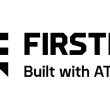San Jose votes against Bay Area 700 MHz LTE network
San Jose City Council members yesterday unanimously voted to decline participating in the 700 MHz LTE public-safety network that Motorola plans to build in the San Francisco Bay Area, leaving the proposed interoperable broadband system without the largest city in the region.
The National Telecommunications and Information Administration (NTIA) asked that government agencies in the region sign letters of intent this week, according to the office of Alameda County Sheriff Gregory Ahern — executive sponsor for the LTE project, known as BayWEB. NTIA is administering the $50.6 million grant to Motorola that is expected to fund the buildout of the 193-site network in the Bay Area.
San Jose council members expressed support for the notion of an interoperable LTE network for the region’s first responders but voted against having the city sign a letter of intent to participate in the project, citing a lack of transparency and multiple misrepresentations in the work done thus far. Some of the numerous concerns voiced by the San Jose council included the following:
- A controversial selection process for a partner in the Broadband Technology Opportunity Program (BTOP) grant application that was made available only to vendors that responded to a Bay Area Urban Area Security Initiative (UASI) request for information several months earlier.
- Representations in the BTOP grant application that all sites are ready for LTE deployment, when several counties likely will need to spend millions to prepare the sites to meet technical specifications.
- The lack of information regarding BayWEB in several areas, particularly the financial obligations that participating entities would assume. San Jose has filed freedom-of-information and open-records requests to obtain documents regarding BayWEB.
- The transformation of Project Cornerstone — the 10-site LTE pilot project funded entirely with UASI funds — from a UASI project to one headed by the East Bay Regional Communications System Authority (EBRCSA) without a vote of the Bay Area UASI Approval Authority. On Monday, the Approval Authority tabled an item seeking retroactive approval of the UASI funds being transferred to EBRCSA, even though about half of the $6.2 million already has been spent.
- Ahern signing a spectrum lease on behalf of a nonexistent entity — the San Francisco Bay Area Urban Area Region — with the Public Safety Spectrum Trust (PSST) without notifying or seeking permission from San Jose, one of the three cities that was granted an FCC waiver to use the airwaves.
- Several decisions and actions have been taken by the Bay Area UASI staff regarding the project without the permission of the Approval Authority. Bay Area UASI staff members have said BayWEB is not a UASI project.
Mayor Chuck Reed said signing the letter of intent effectively would mean the city would be dismissing these perceived transgressions.
“One of my concerns about the letter of intent is that it looks like a request for us to just let bygones be bygones on a procurement process that certainly doesn’t meet our standards and I certainly can’t believe it meets San Francisco’s standards … that we just not worry about that anymore and that not worry about misrepresentations in the grant application about this project,” Reed said during the council meeting, which was webcast.
Councilman Pete Constant said it is “ludicrous” to ask San Jose to sign a letter of intent under these circumstances.
“What we’re being asked to do is to just close our eyes and say, ‘Sure, go spend our money and let us know if it turns out,’” Constant said. “It’s unacceptable. I think that this is bordering on fraud, if not actually criminally fraud.
“I don’t know about anyone else’s accounting, but — to me — that’s fraud. ‘Just put whatever you need on the [BTOP grant] application, so you get the money. Don’t worry about it, we’ll fix it later.’”
Councilman Sam Liccardo echoed this sentiment.
“In my seven years as a criminal prosecutor with the DA’s office and the U.S. attorney’s office, I would have cleared my desk for a public-corruption case like this one,” Liccardo said. “I think this stinks, and I think folks ought to go get attorneys.”
Several council members expressed disappointment that Ahern was not at yesterday’s meeting. Instead, Ahern asked Alameda County Undersheriff Richard Lucia and EBRCSA Executive Director Bill McCammon to attend.
“I’m disappointed that Sheriff Ahern isn’t here, because there are a lot of questions that we have,” Constant said. “I don’t think it’s an accident that he’s not here, because it’s a continuance of a pattern of refusing to cooperate and refusing to answer questions to the city of San Jose. Quite frankly, I’m getting fed up with that.”
McCammon acknowledged the need for BayWEB to have a formal governance structure and echoed the council’s concerns about the expense associated with preparing sites for the LTE buildout. McCammon said he want the new governance body to address those items and lay the foundation for financial negotiations with Motorola. In the meantime, signing the letter of intent would not place any financial obligations on the city of San Jose, he said.
“Nobody’s asking you to spend a dime today,” McCammon said during the meeting. “All we want is for you to partner with us, so we can determine what those costs are. Then there’s going to be an opportunity for us to determine whether we think this is good for the Bay Area or not, before anybody obligates one dime to do that.”
Instead of voting to sign a letter of intent, the San Jose City Council unanimously opted to write a letter expressing support for the concept of a regional LTE public-safety network if four guiding principles — one of which being an open procurement process — are followed. In addition, the council voted to ask NTIA to reallocate the BTOP grant funding to the Bay Area region instead of to Motorola, although staff members or elected officials acknowledged that it is unlikely the request will be granted.

















